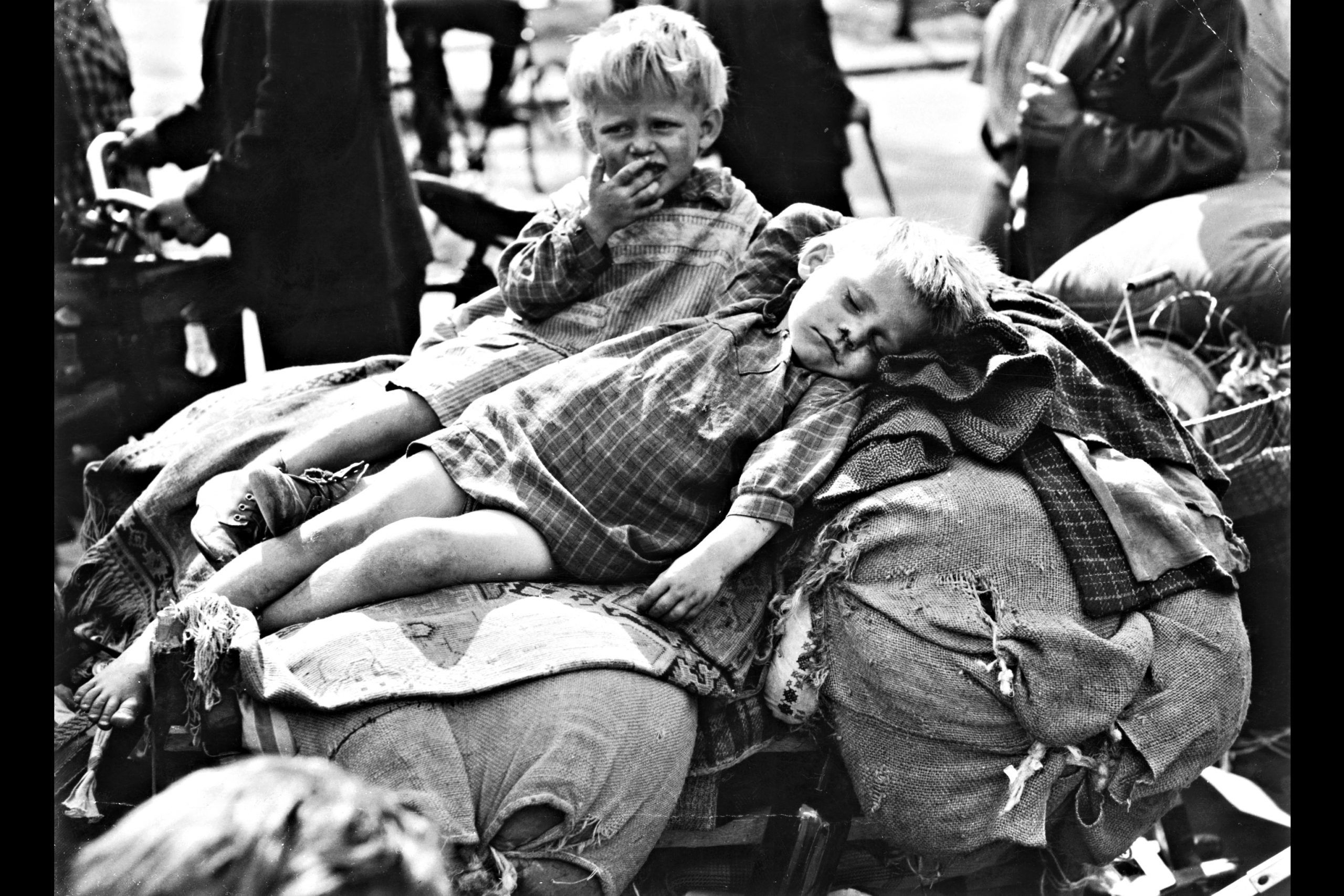DanChurchAid has existed for more than 100 years. It all started in 1922, when leaders from 22 European national evangelical churches met to discuss how they could help each other recover from World War I.
Many small churches in the most war-torn countries could only survive with outside help. Relatively speaking Denmark was spared from the devastation of the war. It was therefore a desire to support their European sister churches that led to the foundation of “The Danish National Evangelical Lutheran Church’s Relief Aid for the Evangelical Churches of Europe.” The organisation later changed its name to DanChurchAid.
Dr. Theol. Alfred Th. Jørgensen became the organisation’s leader, and neither he nor the other people involved expected the initiative to last longer than a few years.
After World War II, Europe lay in ruins. Millions of people were homeless or displaced. In Germany alone, more than 12 million people lived as refugees.
International church networks began to reestablish themselves. DanChurchAid was part of both The Lutheran World Federation and the World Council of Churches. DanChurchAid used these two major organisations to funnel relief aid and financial support to refugees inside and outside of Europe – including Palestinian refugees in Syria and Lebanon, and Chinese refugees in Hong Kong.
During this period DanChurchAid developed its evangelical character and focused on assisting all people regardless of faith or religious conviction.
In 1965, there were three billion people in the world, and two billion of them suffered from hunger. There were a number of reasons: floods, earthquakes, volcanic eruptions, drought – and not least, warfare.
DanChurchAid fostered the idea of loading aircrafts with emergency aid and bringing relief efficiently to those in need.
In 1967, Denmark saw its first humanitarian disaster transmitted via television, when the province of Biafra attempted to separate from Nigeria.
For four years, DanChurchAid coordinated and lead international efforts to ensure humanitarian assistance to the civilian population in Biafra. An airlift with more than 5,000 nightly flights to Biafra saved more than a million people from starvation.
In 1972, Århus pastor Herluf Andersen opened DanChurchAid’s first second-hand shop.
At the same time, humanitarian organisations began to focus on development efforts once the acute disaster had been averted. The leaders of DanChurchAid also began working on strategies to help prevent conflicts and famine to begin with.
In close cooperation with Danida, DanChurchAid began to work with local actors to strengthen civil society in the poorest countries. This was the start of DanChurchAid’s development work to help fight poverty and foster development in the world’s most fragile countries.
This work prompted the necessary decision that development aid should not be politically motivated.
In 1980, Bishop Desmond Tutu visited Copenhagen with a clear message. If you were really against apartheid, an economic boycott against the South African regime must be implemented. Otherwise, the repression would continue.
The South African battle over apartheid helped sharpen DanChurchAid’s focus on human rights and democracy.
In the 1990s, DanChurchAid began to put even more effort into the work of promoting democracy. Under the heading “Justice for the Poor”, the leaders of DanChurchAid developed a rights-based approach to development work. The organisation focused on helping the world’s poorest fight for their universal rights.
As DanChurchAid expanded its activities, it became increasingly clear that financial resources were needed to supplement the support from Danida. DanChurchAid then called on parishes throughout the country to create a national, door-to-door, fundraising campaign.
Since the first Parish Collection campaign in 1999, the fundraising drive has grown into a strong collaborative effort involving more than 1,200 local parishes and thousands of volunteers (Danish).
DanChurchAid began the new millennium with decentralisation
Resources and competencies were to be moved from the headquarters in Copenhagen out into the rest of the world, closer to the local actors and those in need.
At the same time, DanChurchAid became involved in the international group ACT Alliance (Action by Churches Together). ACT Alliance started as a collaborative disaster-relief effort, but in 2010 the alliance also began to work on long-term development initiatives in a number of countries.
Today, ACT Alliance consists of over 135 faith-based and humanitarian organisations working in development, humanitarian assistance, and advocacy in over 120 countries.
In the last ten years, DanChurchAid has intensified its operational efforts to strengthen women’s rights and to protect the world’s most fragile societies against the devastating effects of climate change.
DanChurchAid is focused on working with women-led organisations, with the goal to provide an economic and political voice to the world’s poorest women. In the fields of human rights and climate justice, DanChurchAid pursues progressive advocacy with ambitious efforts trying to get politicians to make decisions that combat the structural inequality between rich and poor societies, as well as between the sexes.
- Our Patron – Princess Mary
- Results
- DanChurchAid donors

